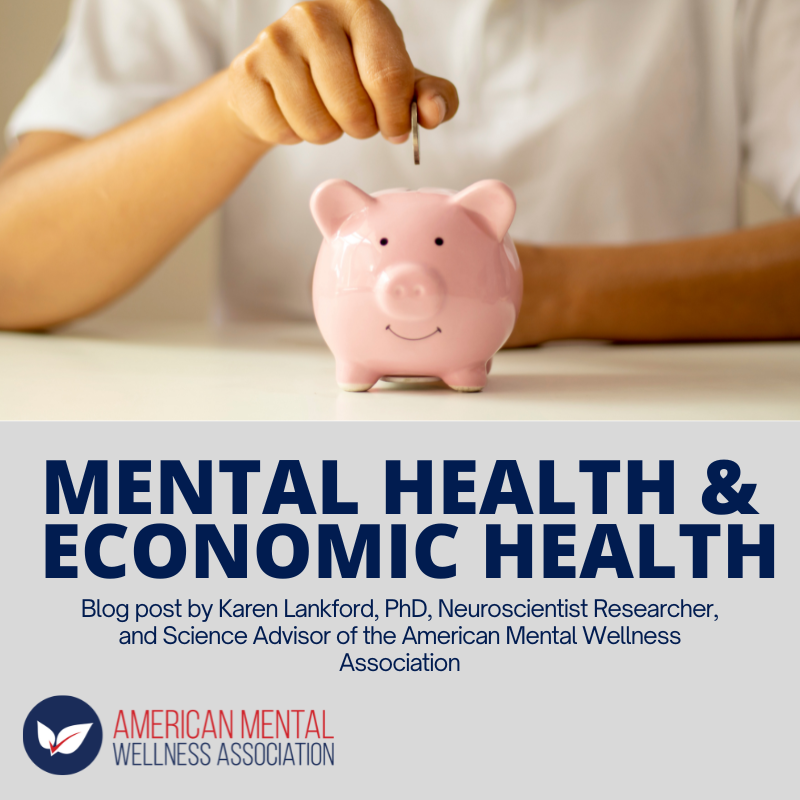Mental Health and Economic Health | Karen Lankford, PhD, Neuroscientist at Yale University
One of the key features of clinical depression which researchers use to validate animal models is that depressed individuals show a reduced willingness to work for a reward.
When given a choice between pressing a bar one time for a small reward (ordinary rat chow for a rat or $1 for a human) or pressing a second bar several times for a much higher reward (tastier food such a peanut butter for a rat or $5 for a human), a non-depressed individual will almost always choose to put in the little bit of extra effort to get the higher reward.
On the other hand, a depressed individual will usually settle for the reward that requires the least effort
to gain. This makes sense when you understand that clinical depression is characterized by an inability
to experience positive emotions such a pleasure, joy, contentment, or love. For someone who is
depressed, rewards just are not as rewarding.
This brings to mind the old joke about the teacher who tried to motivate her students to put more effort
into studying for their weekly spelling test by promising a chocolate bar to any child who got 100% on
the test. All the students except one began to show improvements in their test scores and were
regularly scoring 100%. When the teacher asked little Timmy why he was not studying like the rest of
the children and wouldn’t he like to win a candy bar, the boy simply shrugged and said that he was
allergic to chocolate. Why would you expect someone to put in an effort to gain something which they
could not enjoy?
This is the problem that clinical depression presents in a capitalistic economy. Capitalism is based on
the presumption that people will work harder, more creatively, or in ways that benefit society more
when they can personally enjoy the rewards of their efforts. But what if the rewards are not rewarding?
If a worker can only experience the pain of being rejected for a job, or the struggles of trying to learn a
new skill or trade, but not the feeling of achievement from getting the job, mastering the skill, or
spending their earnings on nice things, why would they bother? One has to wonder how many people
whom others deem lazy because they do not seem to be making an effort to improve their lives are
actually clinically depressed.
This is an especially important consideration when you realize that chronic stress is one of the main risk factors for clinical depression and growing up in poverty is certainly stressful.
In animals, food insecurity, with the amounts and locations of food changing every day, results in elevated levels of key stress hormones and increased behaviors associated with anxiety and depression. It does not take a great stretch of imagination to realize that a lot of people have much more stress in their lives than unpredictable mealtimes. A lot of kids grow up not only being unsure whether they will have enough to eat today, have the electricity turned off, be evicted, or even be shot by a stray bullet from gang violence
This country invests a great deal of money in transportation infrastructure to make sure that workers
can get to their workplaces and in educational infrastructure to make sure that they have the skills to fill
needed jobs. Maybe we should consider investing some funds into the mental health infrastructure that
will make sure they have the mental fitness to want to be productive workers.

